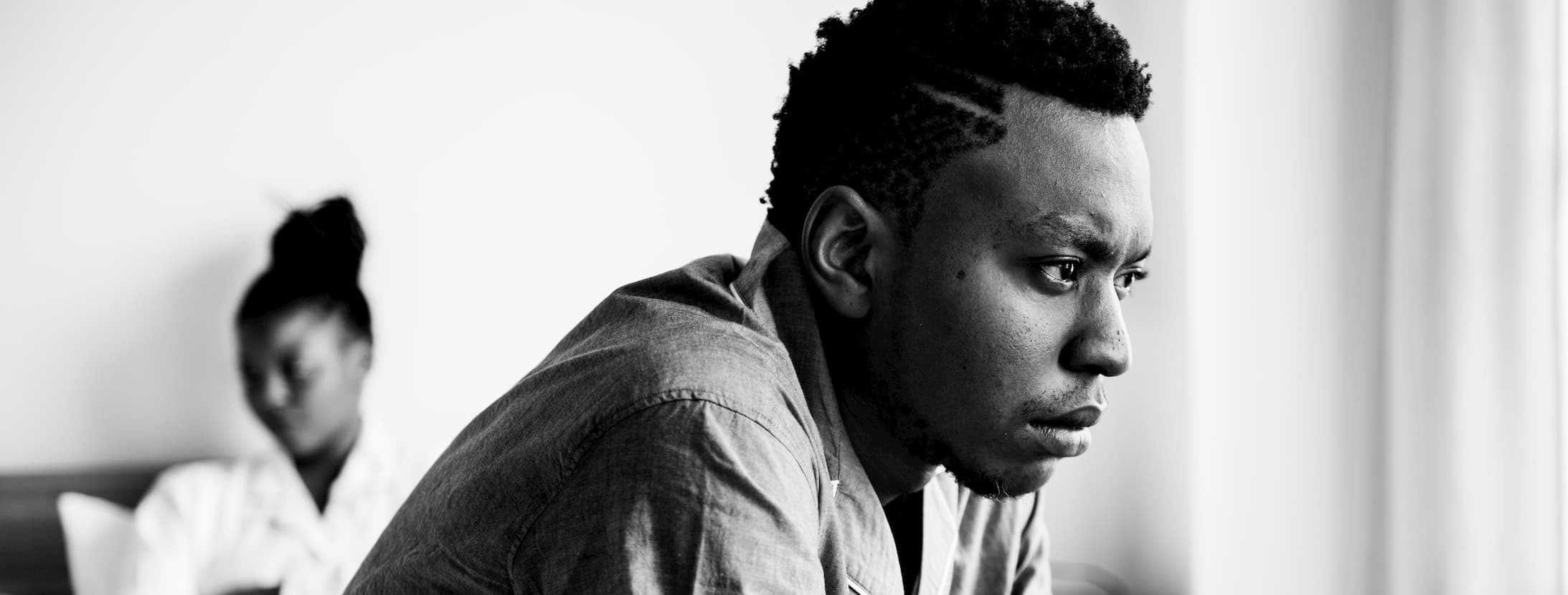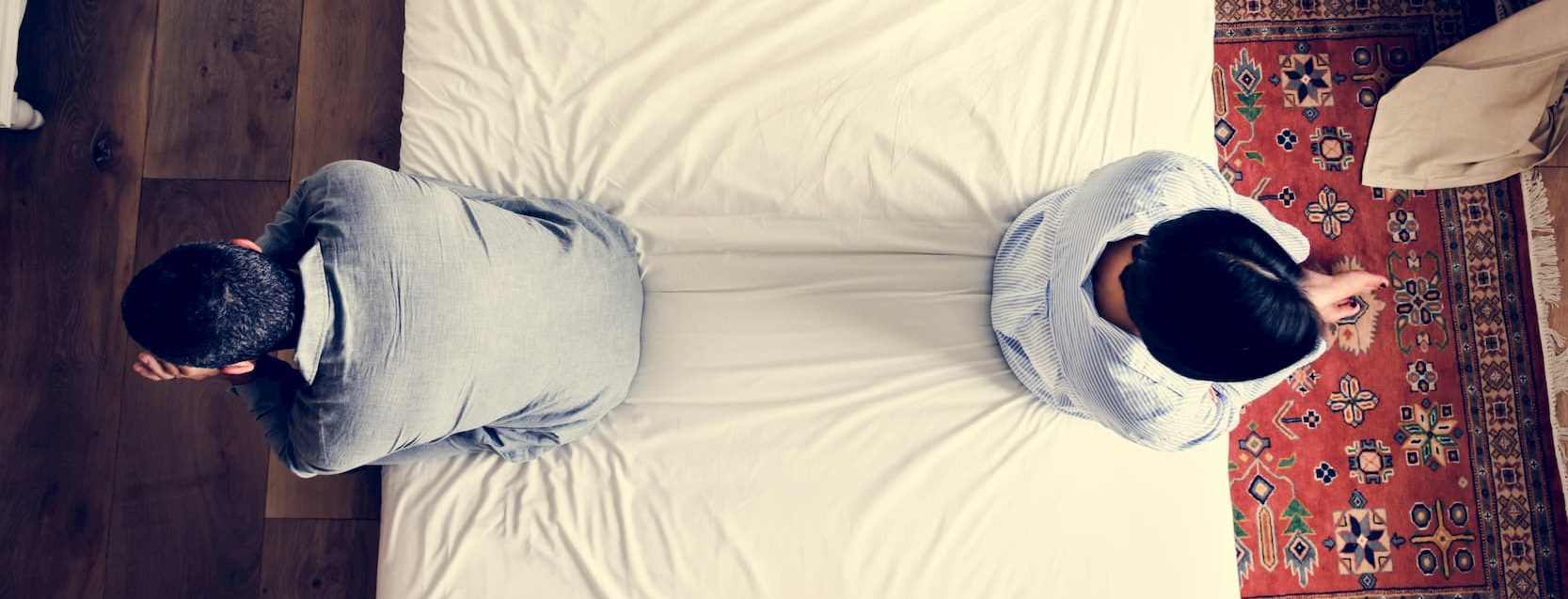Have you been in a relationship where you feel that your partner is avoiding you by spending a lot of time at work, with friends or away from you?
Or perhaps you feel your partner is anxious and seems to try to throw away your relationship when it becomes uncomfortable or maybe engages in strange behavior because they don’t think before they act.
Loving someone with avoidant attachment can be challenging and stressful. When a partner attaches in an anxious or avoidant style it can feel like there’s a third person in the relationship getting in between you both causing confusion, doubt and worry.
Nonetheless, this doesn’t have to end your relationship or make it difficult to enjoy being together. By understanding why they attach in an anxious or avoidant style and how love avoidance may affect your partner and your relationship, you can connect in a new healthy way.
What Is Avoidant Attachment In Relationships?

During the initial stages of your romantic relationship, your partner may have seemed mysterious. They didn’t speak too much and maybe there was a feeling of melancholy. But now, no matter how long you’ve been together, you feel that they continue to remain detached.
People who experience avoidant attachment want to avoid conflict, so they seem to avoid connection as much as possible. Being in a relationship with an avoidant attachment partner, you may question if they really care or love you.
You may feel tempted to put their behavior down to neglect, selfishness or egocentricity. But just know that if you critique or accuse them of this, then this will lead your avoidant partner to withdraw even more.
To deal with an avoidant partner you need to consider that despite their robust outward manner, they are scared to let their guard down.
The core wound for people with avoidant attachment styles is feeling that they are not seen for who they are. This makes them avoid experiencing feelings because their parents didn’t allow them to feel uncomfortable feelings as a child.
They grow up not being able to experience uncomfortable situations in their relationships, which is why they want to avoid them. This means they are distant and put up barriers within their relationship because being cared for with kindness generates unfamiliar feelings for them.
What Does Anxious Attachment Look Like?
Most people who attach in an anxious way often grew up experiencing abandonment and now crave connection in an adult relationship.
If you are dating someone with anxiety, it’s likely your partner spends a lot of time worrying about what could go wrong with your relationship.
Common Anxious Attachment Style Signs
Although most people have occasional anxious thoughts, especially when the relationship is new, the difference with someone with an anxious attachment style is that they have intense anxious thoughts much more often.
For example, they may have thoughts such as:
- What if he/she doesn’t love me as much as I love him/her?
- What if he/she is hiding something from me?
- What if he/she is cheating on me?
- What if we break up?
- What if he/she doesn’t text me back?
These thoughts can then lead to behaving in ways that test the relationship. For example, being controlling and overly needy; checking up on your partner on social media; doing drive-bys to make sure your partner’s home or checking your partner’s cell phone while they’re in the shower, etc.
Such behaviors stem from a deep fear of abandonment. While breakups are hard for most people, ending relationships is much harder for people who suffer from anxiety.
Can An Anxious-Avoidant Relationship Work?
People with avoidant and anxious attachment styles are often drawn to each other, because they are bonded through their childhood trauma.
Although you may genuinely love each other, if you haven’t healed from past trauma, then your individual pain-body wounds get activated again and again from each other.
This can have a disastrous impact on you and your relationship – especially as the avoidant behavior may trigger more anxiety in the other person, or vice versa. However, this doesn’t mean that it is impossible for partners in an avoidant attachment relationship to find success.
How Do You Deal With An Avoidant Partner?
The good news is that no matter what childhood experiences you or your partner have experienced, you can create healthy relationships.
In order to do so, both you and your partner will need to be committed to healing past traumas for the relationship to work. You may need to give your partner more space and your partner may need to push themself to look ahead to the future.

Over time both avoidant and anxious partners can become more secure in a stable relationship. Here are seven ways to deal with a partner with an anxious-avoidant attachment:
- Give them plenty of space. If they need to withdraw, then let them.
- Don’t take it personally. This isn’t about you.
- Reinforce the positive actions that you like and tell them what you value in the relationship.
- Listen and offer understanding. Be open to listening to your partner’s feelings and issues. The key thing is to listen to understand, not to fix a problem.
- Respect your differences.
- Set healthy boundaries and tell your partner what you need and what you won’t tolerate.
- Seek support from professionals so you can both heal.
Learn To Bond Securely With Our Expert Love Avoidance Coaching
The thing to remember here is that your relationship can get better and you can manage and tolerate uncomfortable emotions while maintaining self-care. If you want help to move away from old patterns and create relational alignment and freedom, then contact PIVOT.
We are here to help you build healthier relationships by offering insightful relationship advice and guidance to individuals and couples. You can also learn to find happiness in your relationships in one of our in-depth love avoidance relationships workshops and retreats. No matter what your relationship struggles may be, reach out to PIVOT today!













